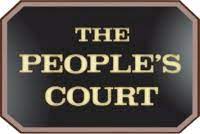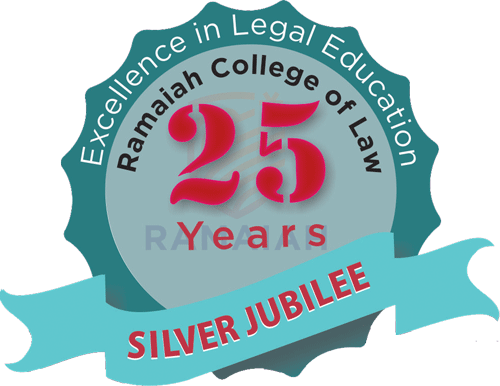People’s Court – A Boon to the Society.

Bhumika
The Constitution of India is the supreme law of India. The document lays down the framework that defines the fundamental political code, structure, procedures, powers, and duties of government institutions and sets out fundamental rights, directive principles, and the duties of citizens.
The judiciary is the final arbiter of the constitution. Its duty is to act as a watchdog, preventing any legislative or executive act from overstepping constitutional bounds. The judiciary protects the fundamental rights of the people. As a watchdog of the constitution, judiciary has a lot of responsibilities, to keep a check on legislative and executive bodies and protecting the fundamental rights of the people. Sometimes this leads to delay in passing some judgements and some cases may take up the Court’s time for longer and other cases may not get the required time and attention by the respective Court. As the saying goes, “Justice delayed is justice denied” and the poor and weaker sections of the society are mostly affected by this delay than anyone else and they have no other means to justice other than this. There are so many cases pending before the courts for years which need to be addressed and judgements to be passed. To make sure there is no further delay in delivering the judgement and to eliminate the said delay to a certain level, National Legal Services Authority, also known as NALSA in accordance with article 39A of the constitution of India lays down policies, principles, guidelines and frames effective and economical schemes for the State Legal Services Authorities to implement the Legal Services Programmes throughout the country. Primarily, the State Legal Services Authorities, District Legal Services Authorities, Taluk Legal Services Committees, etc. are asked to discharge the following main functions on regular basis-
- To Provide Free and Competent Legal Services to the eligible persons;
- To organize Lok Adalats for amicable settlement of disputes
- To organize legal awareness camps in the rural areas.
Therefore, in accordance to the Article 39A1 and Articles 142 and 22(1)3 of the Constitution it is obligatory for the State to ensure equality before law and a legal system which promotes justice on the basis of equal opportunity to all. The Indian Constitution aims to bring justice to all and by establishing the Lok Adalats it has been easier to bring justice to the poor and underprivileged. Objective of Lok Adalat is to settle the disputes which are pending before the courts, by negotiations, conciliation and by adopting persuasive common sense and human approach to the problems of the disputants.
Article 39A of the Constitution provides for free legal aid to the poor and weaker sections of the society and ensures justice for all. The aim of Lok Adalats is to bring justice to poor and underprivileged people of India. It ensures that opportunities for securing justice are not denied to any citizen by reason of economic or other disabilities.
Lok Adalat , also known as People's Court is Statutory Organisation under Legal Services Authorities Act, 1987 and it was created as an alternative dispute resolution mechanism used in India. It is a forum where cases pending on panchayat, or at a pre-litigation stage in a court of law, are settled. Under this Act, the award or the decision given by the Lok Adalats is deemed to be a decree of a civil court case and is final and binding on all parties and no appeal against such an award lies before any court of law. If the parties are not satisfied with the award of the Lok Adalat, they are free to initiate litigation by approaching the court of appropriate jurisdiction. Civil cases, matrimonial cases, Motor Accident Claim Tribunal (MACT) cases and petty offence cases are mainly referred for Lok Adalat.
There is no court fee payable when a matter is filed in a Lok Adalat. If a matter pending in the court of law is referred to the Lok Adalat and is settled subsequently, the court fee originally paid in the court on the complaints/petition is also refunded back to the parties. The persons deciding the cases in the Lok Adalats are called the Members of the Lok Adalats. They have the role of statutory conciliators only and do not have any judicial role, therefore they can only persuade the parties to come to a conclusion for settling the dispute outside the court in the Lok Adalat and shall not pressurize or coerce any of the parties to compromise or settle cases or matters either directly or indirectly. The Lok Adalat shall not decide the matter so referred at its own instance, instead the same would be decided on the basis of the compromise or settlement between the parties. The members shall assist the parties in an independent and impartial manner in their attempt to reach amicable settlement of their dispute.
The Lok Adalat ensures an informal and speedy justice. The award of the Lok Adalat is as good as the decree of a Court. The award passed by the Lok Adalat is the decision of the court itself though arrived at by the simpler method of conciliation instead of the process of arguments in court. Lok Adalat helps the overburdened Court alleviate the burden of arrears of cases and as the award becomes final and binding on both the parties, no appeal is filed in the Appellate Court and the burden of the Appellate Court in hierarchy is also reduced. This not only helps the parties but also the Courts which are overburdened and it helps to achieve the constitutional legal goal of speedy disposal of cases.
1 Article 39A of the Constitution of India provides for free legal aid to the poor and weaker sections of the society
2 Article 14 in The Constitution Of India 1949
3 Article 22(1) in The Constitution Of India 1949

